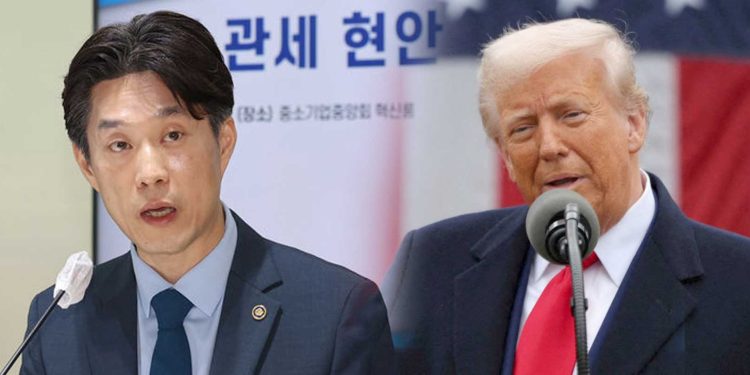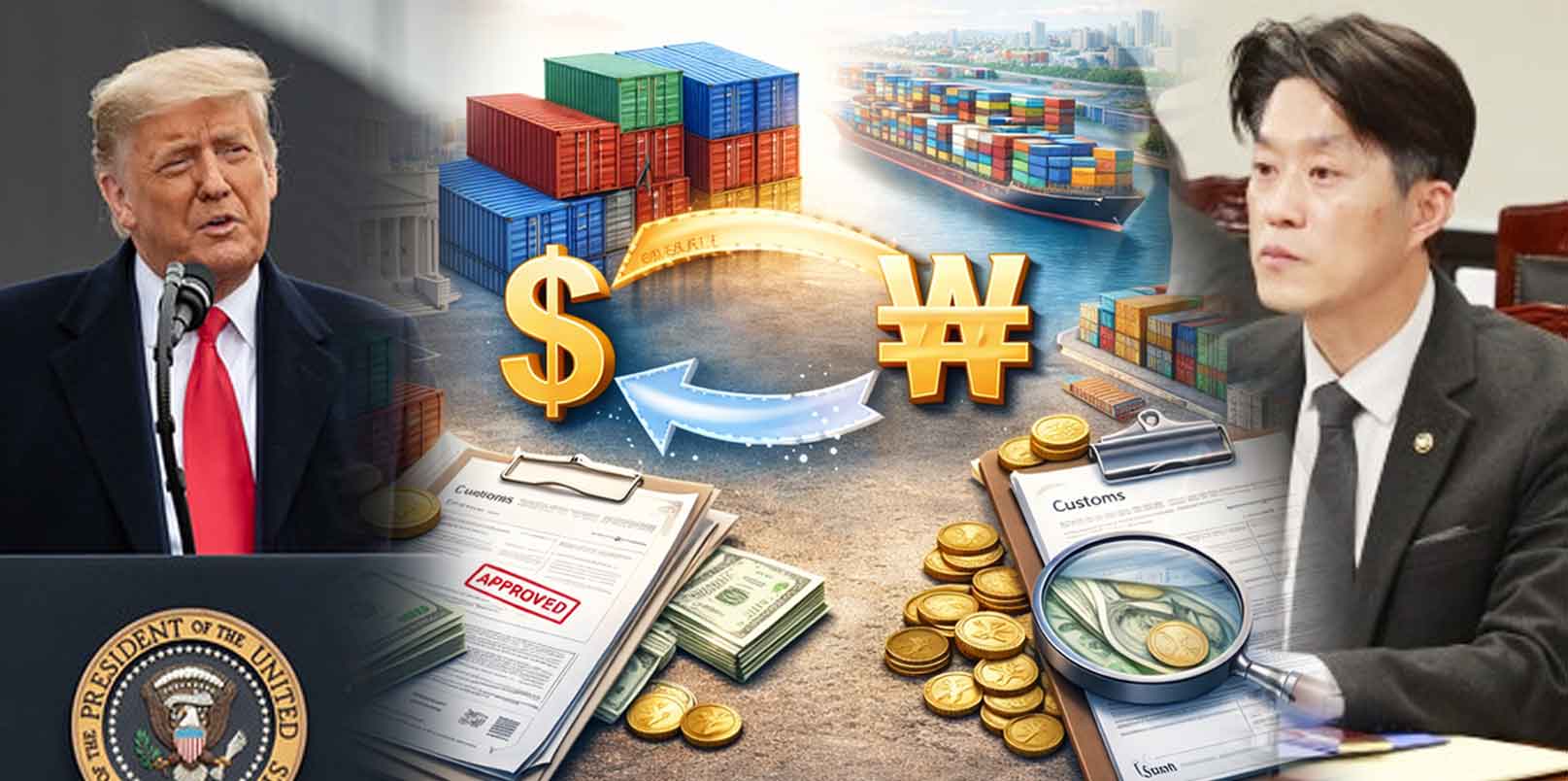Korean small and medium-sized enterprises (SME), critical drivers of the nation’s export economy, are under strain from U.S. reciprocal tariffs and the removal of the de minimis duty-free threshold. In response, the Ministry of SMEs and Startups (MSS) has pledged swift, on-site support — from financing and logistics relief to new strategies that help SMEs diversify exports and expand into emerging markets across the Global South.
MSS Korea Convenes SME Tariff Review Meeting
On September 9, Vice Minister Noh Yong-seok of the Ministry of SMEs and Startups hosted an “SME Tariff Review Meeting” at the Korea Federation of SMEs in Seoul. This was the first session since the government unveiled its “SME Support Plan in Response to U.S. Reciprocal Tariffs” on September 3.
The meeting gathered SMEs exporting the top 10 categories to the U.S., alongside the Korea Federation of SMEs (KBIZ), Korea Venture Business Association, Korea Startup Forum, and support agencies such as the Korea SMEs and Startups Agency (KOSME), Korea Institute of Startup & Entrepreneurship Development (KISED), the Korea Technology Finance Corporation, as well as other key SME support bodies and affiliated export/finance agencies.
Participants reviewed the industry-specific impact of reciprocal and itemized tariffs and the added costs from the abolishment of the de minimis duty-free threshold, which previously exempted low-value parcels from duties.
U.S. Tariffs, Trade Shifts, and Policy Response
The U.S. reciprocal tariff policy has increased costs for Korean exporters across multiple sectors. SMEs in particular are exposed, given their limited ability to absorb new duties and adjust supply chains.
Additionally, the abolishment of the De Minimis duty-free system has further complicated e-commerce and cross-border trade for smaller firms.
Therefore, following support packages in February and May, the MSS unveiled its reciprocal tariff response plan on September 3, including tariff consultation, financing aid, and expansion/logistics pathways into alternative markets.
Now, at the September 9 review meeting, MSS stressed that support measures must “take root quickly in the field,” highlighting rapid implementation as a core goal.
Survey Findings: SME Exporters Call for Logistics and Financial Support
According to an MSS-KOSME survey of 609 SME exporters to the U.S. conducted in August, 63.1% reported negative impacts from reciprocal tariffs.
When asked about the most urgent policy needs, respondents prioritized:
- Logistics support (73.2%)
- Policy financing (38.8%)
- Tariff information services (23.5%)
- Export market diversification (15.9%)
- U.S. marketing assistance (13.8%)
This data underscores that beyond tariff policy, the immediate challenge lies in operational relief and access to liquidity.
Industry Challenges and Policy Measures for Korea’s SME Resilience
In addition, export SMEs raised four primary concerns during the meeting:
- High costs linked to diversifying export destinations.
- The urgent need for logistics and financing support to ease operational burdens.
- Difficulties confirming tariff applicability and calculating value-added content.
- Added costs from the removal of the small-parcel duty-free allowance.
Vice Minister Noh Yong-seok then emphasized continuity in policy evolution:
“In February and May, we announced measures to help SMEs respond to tariff challenges, followed by September’s plan aligned with the start of U.S. reciprocal tariffs. We will continue to reflect both the shifting trade environment and field-level realities in new measures. Alongside logistics and financing support to reduce tariff-related burdens, we will actively back SME entry into emerging markets, including the Global South.”
Policy Commitments from the Ministry of SMEs and Startups
During the September 9 meeting, the Ministry of SMEs and Startups announced four key measures to help exporters respond to U.S. tariffs:
- Enhanced field, financing, and logistics support to ease immediate operational burdens.
- Tailored entry strategies for core, emerging, and frontier markets.
- Assistance in countering non-tariff barriers, including export restrictions.
- Strengthened cooperation with Korean-American groups to support local entry into the U.S. market.
Global South Explained
The Global South refers to emerging and developing economies in regions such as ASEAN, Africa, the Middle East, and Latin America.
In contrast to the “Global North” (the U.S., Europe, and Northeast Asia), these markets are increasingly important as trade partners that operate outside traditional, advanced–economy–dominated supply chains.
That is why for Korean SMEs, targeting the Global South represents both a diversification strategy and a pathway to long-term resilience.
Strengthening Korea’s Regional Venture and Startup Hub Position
The government’s push for SME resilience carries broader implications for Korea’s startup and venture ecosystem. By prioritizing financing, logistics relief, and support for new market entry, policymakers aim to reduce reliance on the U.S. market while accelerating diversification into ASEAN, Africa, the Middle East, and Latin America.
This approach aligns with Korea’s ambition to strengthen its role as a regional venture and startup hub. It also benefits startups that depend on SME supply chains to scale globally.
Most importantly, it signals a shifting trade map for global investors and founders: Korean SMEs are set to pursue cross-border opportunities beyond traditional markets, reinforcing Korea’s role in global supply chains and creating new entry points for collaboration.
Export Diversification: Securing Korea’s Long-Term Competitiveness
Ultimately, the MSS support plan to defend SME resilience against U.S. tariffs goes beyond just a short-term relief measure. It also underscores Korea’s intent to adapt swiftly to trade disruptions and secures long-term competitiveness through diversified export strategies.
Therefore, for Korean startups and SMEs, this means enhanced access to financing, better logistics infrastructure, and clearer policy navigation. And for global partners, it signals opportunities to engage with Korean firms seeking growth in emerging markets, where trade influence is rapidly expanding.
🤝 Looking to connect with verified Korean companies building globally?
Explore curated company profiles and request direct introductions through beSUCCESS Connect.
– Stay Ahead in Korea’s Startup Scene –
Get real-time insights, funding updates, and policy shifts shaping Korea’s innovation ecosystem.
➡️ Follow KoreaTechDesk on LinkedIn, X (Twitter), Threads, Bluesky, Telegram, Facebook, and WhatsApp Channel.





